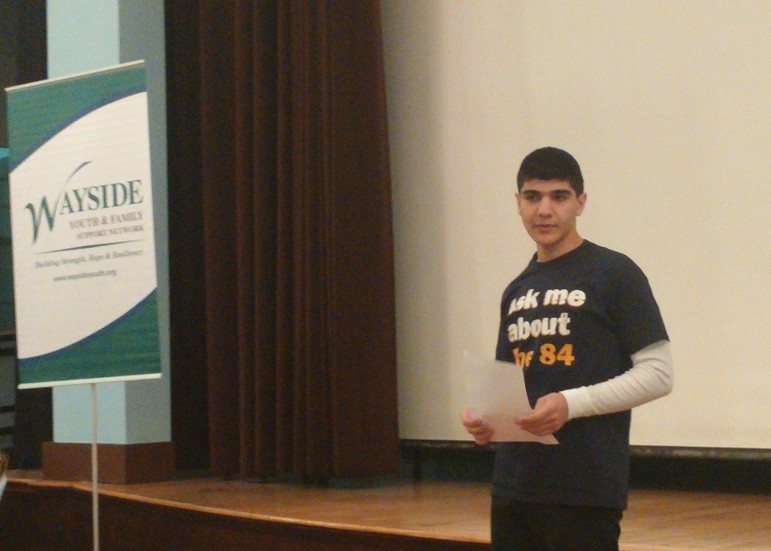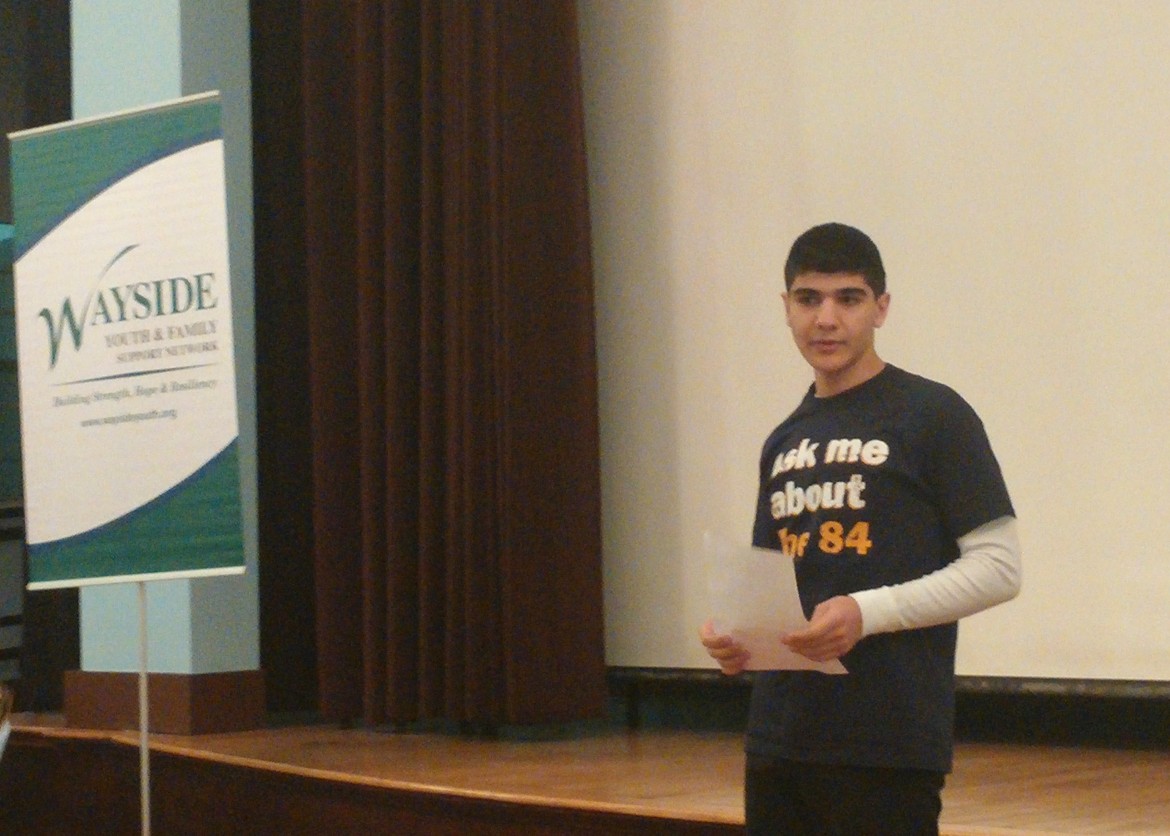
Charlie Breitrose
Watertown Youth Coalition Peer Leader Chris, a Watertown High School student, spoke at the WYC annual meeting.
The Watertown Youth Coalition’s survey of Watertown High School students found a sharp rise in alcohol use and depression among students.
Preliminary results of the 2014 Youth Risk Behavior Survey found that more than 40 percent of students drank alcohol over the previous 30 days, and more than 35 percent reported binge drinking during that time, according to the data released at the WYC’s annual meeting on Wednesday night.
Alcohol use was 35.5 percent in 2012 but that number rose to 42.8 percent in 2014, according to the survey of 533 students in the spring of 2014. Binge drinking went from 21.5 percent in 2012 to 35.5 percent in 2014.
Attendees were asked to come up with ideas for why this was happening, ways to prevent it and other information that might be useful to study the issues.
Watertown High School students who work as peer leaders with WYC reported it is easy to get alcohol from friends or older siblings. Some said they believe teens say they feel drinking made them “more relaxed” and made them “more at ease in social situations.”
In 2014, 27.7 percent of students reported they “felt sad or hopeless almost every day for 2+ weeks in a row and stopped doing some usual activities.” This proportion is up from 2012 when 21.1 percent reported those feelings. The number of students who considered suicide (14.4 percent) and who made suicide plans (11.4 percent) was slightly higher, but the amount who attempted suicide dropped from 10 percent to 7.3 percent.
However, a recent suicide by a WHS student provided a tragic reminder that depression can be a serious problem.
“One student committing suicide is horrible. It shouldn’t happen,” said a peer leader named Demetri.
Attendees wondered if the “Watertown Strong” feeling after the Boston Marathon Bombing suspects were caught to town might have led to some feeling like they could not speak about feeling sad or vulnerable. Other said Watertown has a “stiff upper lip” approach to life where people do not share their feelings.
On the plus side, they believe the small size of the high school and the close knit Watertown community can help deal with these issues.
The survey also looked at marijuana use and use of heroin and prescription medications.
Marijuana use rose slightly from 26.6 percent in 2012 to 28.7 percent in 2014.
Heroin used dropped from 6.3 percent to 5.4 percent. More students reported using prescription drugs for which they did not have a prescription. In 2012, 8 percent reported using prescription drugs of all kinds. In 2014 9.8 percent reported using pain relievers and the same percentage reported using stimulants, sedatives or tranquilizers. In 2012 the type of medication was not specified.
The Watertown Youth Coalition meeting was taped by Watertown Cable Access and will be shown on local cable and on the Cable Access website, WCATV.org.
